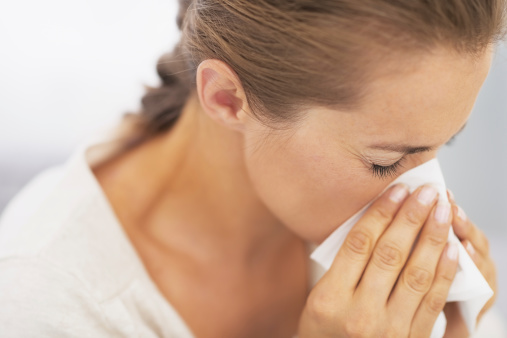Should You Exercise If You’re Not Feeling Well? How to Know
Article posted in: Lifestyle
You’re on a roll: Walking most mornings, getting to an exercise class pretty regularly, or even doing some light strength training. But when your nose stuffs up and you start sneezing all over your sneakers, motivation drops to a minimum. Do you push through and lace up anyway, or kick off those germy shoes and rest up? Some advice on whether or not you should exercise if you’re not feeling well:
You have a cold: Exercise
We’re talking the garden-variety runny nose, slightly scratchy throat and no-fever kind of cold. In many of those cases, working out could do your body good: Mild to moderate exercise can help open your nasal passages and temporarily relieve congestion, according to the Mayo Clinic. Still, you should consider reducing the length and intensity of your workout, and make sure you stay hydrated, says Douglas McKeag, M.D., professor or family and sports medicine at Oregon Health Sciences University: “And of course, if you start to feel worse during your workout, stop right away.”
You have a fever: Rest
“Fever indicates your body is going through some systemic reaction at the very least, if not fighting an infection,” explains Dr. McKeag. “When you’re feverish, you’re also losing fluid. Exercise compounds that, which could lead to dehydration.” Skip your workout if you have any fever at all.
You feel fluish: Rest
Fever and flu often go hand in hand, putting the automatic kibosh on exercise. But even if you don’t have a temperature, it’s not a good idea to exert yourself if you’re feeling fatigued, have widespread muscle aches, or a hacking cough that can also come with the flu. And if you have any kind of chest pressure or pain, it could be pneumonia or something worse; see your doctor.
Your allergies are acting up: Exercise
As long as your physician has said it’s safe for you to work out, go ahead and stick to your regimen. Just don’t push yourself too hard, and take proper precautions: If you are allergic to pollen, for example, postpone your post-breakfast walk around the neighborhood, since pollen counts are highest in the morning. Be sure to take your medication as prescribed, and try to breathe through your nose when exercising—nasal passages act as natural filters and humidifiers to maintain air at proper temperatures as well as filter out allergens, pollutants and irritants, according to the American College of Sports Medicine.
Use common sense: Always.
Let your body be your guide. If any sickness, big or small, has knocked you down, says Dr. McKeag—if you’re unsteady, not eating well, or not feeling like doing much of anything, don’t exercise. When you feel better, you can resume normal activity; and if you’re not sure, check with your doctor.









